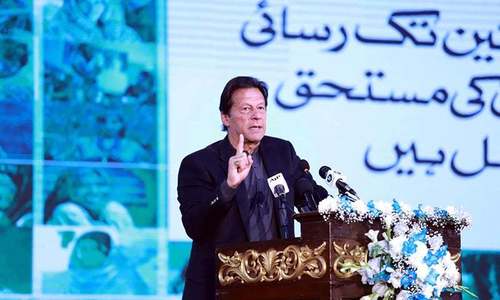ISLAMABAD: The government has planned to extend its financial assistance programme for students of poor families to secondary level education.
At present the Conditional Cash Transfer (CCT) stipends under the Ehsaas Programme are provided only to primary level students.
This financial aid amounting to Rs2,000 and Rs1500 per quarter for girls and boys, respectively, is aimed at encouraging poor families to send their children to schools and prevent dropouts due to extreme poverty.
The decision to upscale the CCT stipends programme to secondary level was taken at a meeting of the Ehsaas steering committee here on Thursday.
Special Assistant to the Prime Minister on Poverty Alleviation and Social Safety Division Dr Sania Nishtar presided over the meeting.
“The secondary education CCT will help the poorest families overcome financial difficulties they face in continuing their children’s education after primary level education.
“The secondary level CCT programme is being structured in line with Ehsaas stipends policy, which allows higher stipends for girls than boys,” remarked Dr Nishtar.
This initiative will help raise the ratio of higher education among poor sections of the population. The costs of schooling continue to rise with age and are much higher after 10 years of age.
In rural areas, declining trend increases after grade 5 and in urban areas dropouts rise after grade 10, but with different reasons.
The programme will bring deserving secondary schoolchildren into its fold from across all 154 districts of the country.
The meeting of the Ehsaas steering committee was attended by members of the poverty alleviation and social safety division, officials of the Ministry of Education and Professional Training, representatives of Commonwealth and Development Office, the World Bank, Asian Development Bank and officials of higher education departments of the four provinces and Azad Kashmir and Gilgit-Baltistan.
Published in Dawn, June 18th, 2021















































